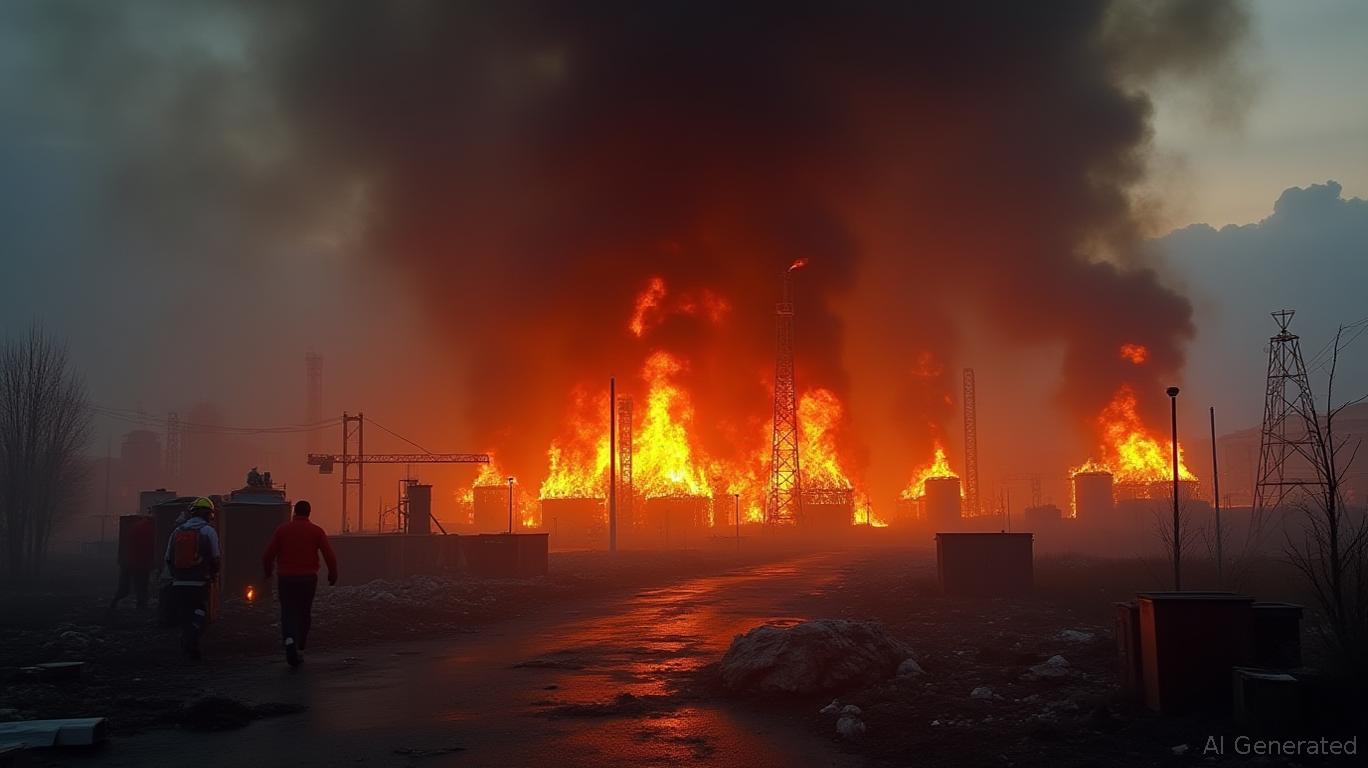On August 3, 2025, a Ukrainian drone strike ignited a massive fire at an oil depot near Sochi, a major tourist city on Russia’s Black Sea coast. Russian regional Governor Veniamin Kondratyev confirmed the attack via Telegram, stating that a fuel tank with a capacity of 2,000 cubic meters was hit by drone wreckage, triggering the blaze [1]. Over 120 firefighters were deployed to control the fire, and Sochi International Airport temporarily suspended flights for safety reasons before resuming operations by the following day [3].
The attack adds to a pattern of recent strikes on Russian infrastructure allegedly carried out by Ukraine. The Krasnodar region, where Sochi is located, has seen frequent drone strikes on energy facilities, including the nearby Ilsky refinery [7]. This incident marks the second such attack in the Adler district this month; a similar strike in late July resulted in a civilian fatality [6].
Russian defense officials claimed to have destroyed 93 Ukrainian drones overnight, including one in the Krasnodar region and 60 over the Black Sea, though they did not specify how many were launched [5]. Ukraine has not yet commented on the Sochi attack, and independent verification of the incident remains pending.
The same day, a Ukrainian drone strike in the Voronezh region — which borders Ukraine — injured four people, prompting a Russian missile strike on Kyiv [8]. These reciprocal attacks underscore the increasing use of long-range drones by both sides, with Ukraine targeting critical infrastructure and Russia focusing on military and civilian assets.
While the Sochi attack disrupted local logistics and temporarily grounded flights, there has been no significant impact on global cryptocurrency markets or major digital assets like Bitcoin or Ethereum [5]. Analysts suggest that crypto markets typically respond more to broader geopolitical signals than to isolated incidents of infrastructure damage [4]. Historical data supports this trend, indicating that digital currencies remain resilient in the face of such localized disruptions.
Russian authorities have highlighted the effectiveness of their air defense systems in intercepting Ukrainian drones. However, the continued success of these cross-border attacks indicates that Kyiv is expanding its reach into Russian territory, targeting key energy and transport hubs [9]. The Sochi strike, occurring near a major tourist and economic center, raises concerns over the vulnerability of Russian infrastructure to sustained drone operations.
As the conflict continues, infrastructure attacks are likely to remain a key strategic component for both sides. Ukraine seeks to weaken Moscow’s military and economic capabilities, while Russia aims to deter further escalation by demonstrating its defensive and retaliatory capacities. The Sochi incident highlights the growing complexity of the war, with long-range strikes now extending deep into Russian heartland regions.
Source:
[1] BBC (https://www.bbc.com/news/articles/ckglyv396ppo)
[3] Euronews.com (https://www.euronews.com/my-europe/2025/08/03/ukrainian-drone-attack-struck-sochi-oil-depot-sparking-major-fire-russian-authorities-say)
[4] New York Post (https://nypost.com/2025/08/03/world-news/ukrainian-drone-attack-sparks-massive-fire-at-russian-oil-depot-near-sochi/)
[5] KOAT (https://www.koat.com/article/russia-fire-oil-depot-sochi-ukraine-drone-attack/65583478)
[6] Reuters (https://www.reuters.com/world/ukraines-drone-attack-sparks-fire-oil-depot-russias-sochi-governor-says-2025-08-03/)
[7] Channel News Asia (https://www.channelnewsasia.com/world/ukrainian-drones-spark-fire-sochi-oil-depot-5274396)
[8] Financial Times (https://www.ft.com/content/365d7e93-e860-4f62-8898-d610a22bdfb7)
[9] CNN (https://www.cnn.com/2025/08/03/europe/ukraine-drone-attack-sochi-russia)

